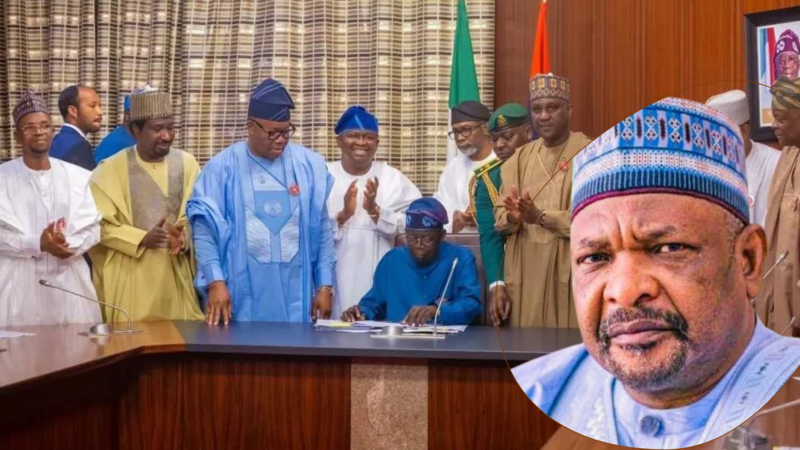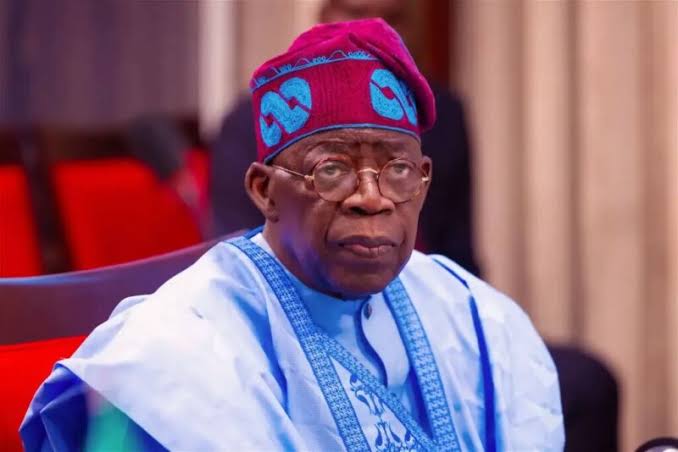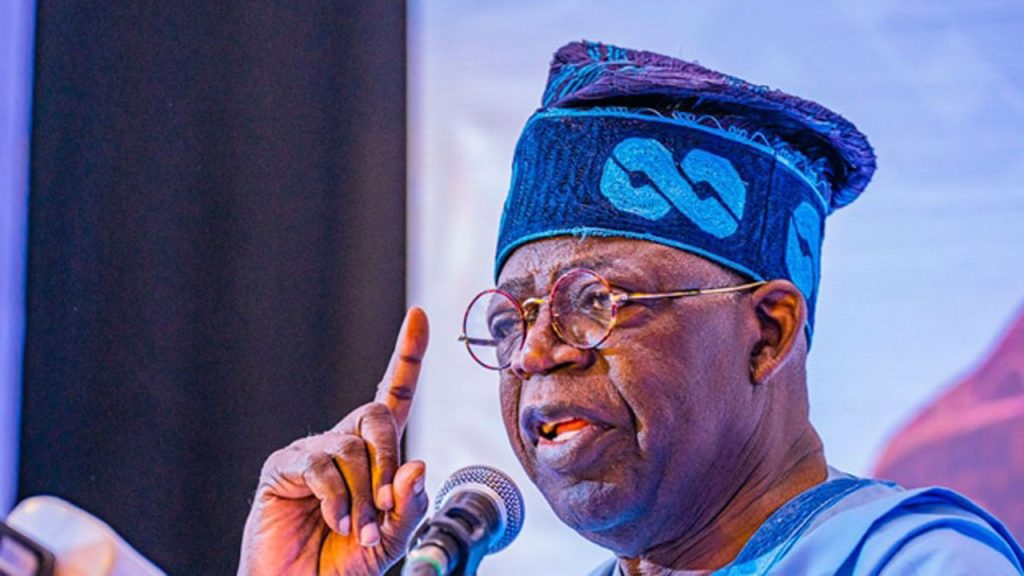Senator Abdul Ningi: What is budget padding? and how to check if budget is padded

The Nigerian Senate has suspended Senator Abdul Ningi, who represents Bauchi central, due to allegations of budget padding amounting to three trillion naira. The suspension, debated on Tuesday, 12th March, lasts for three months.
During the debate, Jimoh Ibrahim, a member of the Appropriation Committee, proposed a 12-month suspension for Ningi citing criminal misinformation and breach of peace.
However, Senator Asuquo Ekpenyong and Senator Abdulfatai Buhari advocated for reducing the suspension to six and three months respectively.
Senate President Godswill Akpabio deemed Ningi’s offence “grievous,” leading to a majority voice vote in favour of the three-month suspension.
Regarding the budget allegations, Senator Yemi Adaramodu clarified that there was no padding in the N28.77 trillion budget passed by the joint chambers of the National Assembly. This came after Senator Abdul Ningi raised concerns about unauthorized changes in the 2024 budget during an interview with the BBC.
Ningi alleged discrepancies between the N28 trillion budget being operated and the N25 trillion budget passed by the National Assembly. He expressed concern over the N3 trillion difference, questioning its whereabouts and implications for the country.
Despite the Senate’s denial of budget padding, the presidency clarified that the National Assembly added N1.27 trillion to the 2024 budget, bringing it to N28 trillion.
READ ALSO: Budget padding, ghost workers’ salaries: Prosecute culpable public officers, center tells ICPC
President Bola Tinubu initially presented a budget of N27.5 trillion, but lawmakers increased it by N1.2 trillion during passage, citing inadequate funding for certain government departments and agencies.
Key elements in the 2024 budget as approved by the lawmakers
- Aggregate Expenditure: N28,777,404,073,861
- Statutory Transfers: N1,742,786,788,150
- Recurrent Expenditure: N8,768,513,380,852
- Capital Expenditure: N9,995,143,298,028
- GDP Growth Rate: 3.88%
- President Tinubu ratified the budget into law on 1 January.
What is budget padding?
Ignatius Chukwu, a business analyst, asserts that the National Assembly possesses the prerogative to scrutinize and endorse the national budget whenever the Executive presents it to them for examination and approval.
Chukwu contends, “What we understand is that when the Executive submits a bill, the legislators have the legitimate authority to include projects in areas they believe should be implemented within a specific sector.”
He asserts that budget padding in Nigeria constitutes theft and corruption within the budgeting process, whereby certain items are added to the budget with inflated amounts, intending not to execute the projects but rather siphon the funds quietly to undisclosed sources.
This is what we commonly referred to as budget padding.
“Budget padding is a scenario where the budget is inflated beyond the original estimates by increasing the value of items or introducing new items into the budget,” he explained to the BBC.
Implication of budget padding?
Ignatius Chuku, the esteemed South South Regional Manager of Business Day Newspaper, emphasised the detrimental effects of budget padding, asserting that it undermines discipline in the budgeting process.
“The foremost law of the nation every year is the budget law, and no government should expend any funds without approval. A committee of the National Assembly must diligently oversee every expenditure,” he remarked.
READ ALSO: Senate approves Buhari’s N850bn loan request to fund 2020 budget
At the close of each fiscal year, all expenditures should be meticulously accounted for. However, this ideal is often observed in theory alone, as practical implementation remains elusive.
“This is due to the fact that the various oversight committees, over the years, have conducted their duties in a manner akin to blatant bribery,” he lamented.
He stressed that padding the budget without requisite accountability constitutes corruption.
Previous allegation of budget padding
In the annals of 2016, a tempest brewed within the hallowed halls of the National Assembly, as allegations of fiscal chicanery roiled the political landscape. The ignominy unfolded with the suspension of the esteemed Chairperson of the House of Representatives committee on Appropriation, Abdulmumini Jibrin, on the 20th of July.
Jibrin levied damning accusations against the venerable Speaker of the House, Yakubu Dogara, and three cohorts, alleging a brazen misuse of authority. Their purported transgression involves the misappropriation of a staggering sum—£40 billion clandestinely siphoned from a £100 billion allocation earmarked for constituency projects, nefariously diverted for personal gain.
Further revelations from that fateful year exposed a labyrinth of deceit, with legislators surreptitiously inflating the budget by £480 billion during budget defense sessions. The Machiavellian machinations came to light when the erstwhile Minister of Health, Isaac Adewole, disavowed the budget presented to his ministry, denouncing it as an alien concoction incompatible with his department’s mandate, asserting, “we shun any foreign intrusion into our fiscal plans.”
Fast forward to 2019, where former President Muhammadu Buhari pointed an accusatory finger at the National Assembly, decrying a £90 billion augmentation of the budget, swelling from £8.83 trillion to £8.92 trillion.
The specter of fiscal indiscretion haunted subsequent years, as in 2020, ex-President Buhari raised alarm over dubious insertions within the budget, decrying an inflation of £264 billion.
In the tumultuous year of 2021, reports surfaced of egregious budget padding by the National Assembly, as President Buhari tabled a budget proposal of £12.08 trillion, only for legislators to brazenly inflate it to £13.6 trillion during scrutiny.
Undeterred by scrutiny, the machinations persisted into 2022, with President Buhari uncovering an additional £37.59 billion stealthily allocated for the Assembly’s pet projects.
The year 2023 bore witness to a further escalation of fiscal malfeasance, with lawmakers stealthily injecting £770.72 billion into new projects within the budget, whilst augmenting the estimates of Ministries, Departments, and Agencies by a staggering £58.55 billion.
How to check if budget is pad
Amidst the discord between Senator Ningi and the presidency, alongside the Senate, the matter continues to stir discussions across the country.
Senator Ningi affirmed his stance on Monday, alleging an additional N3 trillion within the 2024 budget.
In response, Senator Jimoh Ibrahim of Ondo called for the arrest of his colleague, stating that the allegation is false and could potentially lead to a breach of peace. He insists that Senator Ningi must provide an explanation for his claim of budget padding before the court.
READ ALSO: DG Budget Office: It’s not true N27bn was allocated for National Assembly renovation
However, in a bid to combat budget padding, Ignatius Chuku suggested that the government establish a forensic audit panel to scrutinize the country’s budget for the past five years. He emphasized that the intention is not to punish anyone but to ascertain whether budget padding indeed exists and how it occurs. He stressed, “If they discover that negative budget padding is real, then necessary provisions should be made to prevent such occurrences in the future.”
Furthermore, Chukwu recommended the publication of budget details by the National Assembly in newspapers, allowing for transparency and accountability. He stated that this would enable easier monitoring of proposed budget additions and their expenditures, ensuring transparency in budgetary processes.




